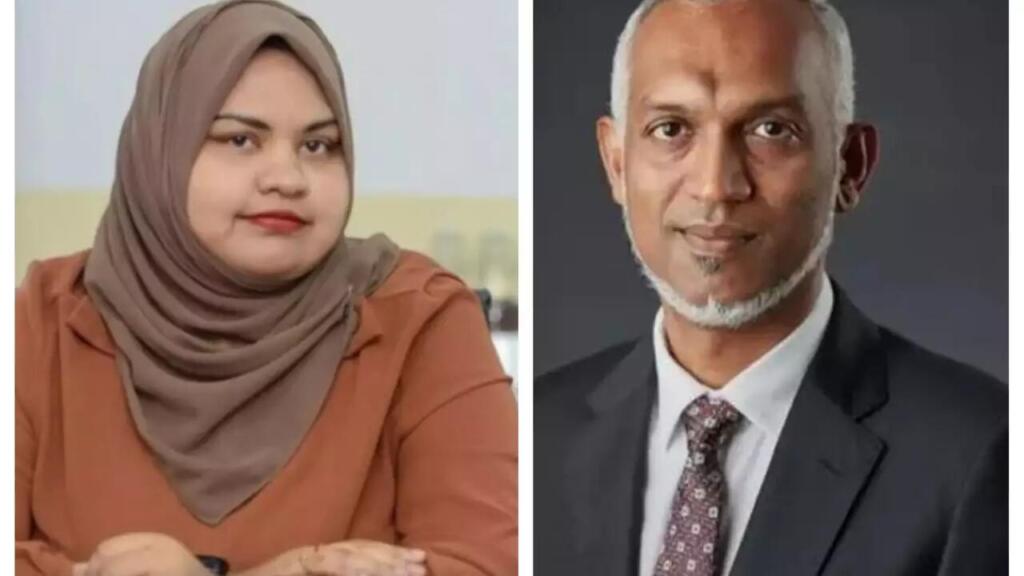The local media reported that authorities suspended Maldives Minister Fathimath Shamnaz Ali Saleem after arresting her and her two siblings on accusations of performing “black magic” on President Mohamed Muizzu. Saleem, who serves as the state minister for Environment, Climate Change, and Energy, was taken into custody on June 23 along with two other suspects. They were remanded in custody for seven days.
Political Implications
Shamnaz, who was once listed as a political appointee on the Environment Ministry’s website, has now transitioned to the list of former political appointees. Chief police spokesperson, Assistant Commissioner of Police Ahmed Shifan, confirmed that an investigation involving Shamnaz and two other individuals is underway. The Maldives government has yet to release an official statement on the matter.
Background of Shamnaz
Previously, Shamnaz served as a member of the Male City Council alongside President Muizzu when he was the city’s mayor. After Muizzu’s election as president last year, Shamnaz resigned from the council and became a state minister at Muliaage before moving to the Environment Ministry. In a nation severely impacted by the climate crisis, her role is crucial, with UN experts warning that rising sea levels could nearly render it uninhabitable by the end of the century.
History of Black Magic in Maldives
The Maldives has a notable history involving black magic. In April 2023, three neighbors fatally stabbed a 62-year-old woman on Manadhoo, accusing her of practicing black magic. The Mihaaru news website reported that an extensive police investigation found no evidence supporting the claim that the victim was involved in sorcery.
In another incident in 2012, during a crackdown on an opposition political rally, police alleged that organizers threw a “cursed rooster” at officers raiding their offices. Despite black magic not being a criminal offense under the penal code in the Muslim-majority Maldives, it does carry a six-month jail sentence under Islamic law. Traditional ceremonies involving black magic are widely practiced across the archipelago, with many believing they can influence outcomes and curse opponents.
Black Magic
Black magic, also known as dark magic, refers to the use of supernatural powers or magic for evil and selfish purposes. Inactive voice often associates with invoking malevolent spirits or practicing rituals meant to cause harm, manipulate, or exert control over others. In contrast with ‘white magic,’ which practitioners intend for benevolent purposes.
Historical and Cultural Context
Black magic has deep historical roots and varies across cultures and religions. In many societies, people link it to witchcraft and the occult. They often see it as a form of sorcery that mystically or supernaturally influences or manipulates people and events.
Historical Perspectives
– Europe: In the Middle Ages, people associated black magic with witchcraft, which led to witch hunts and trials. They believed that practitioners made pacts with the devil and used their powers to harm others.
– Africa: In various African traditions, people often associate voodoo or traditional healers (witch doctors) with wielding both healing and harmful powers, believed to involve black magic.
– Asia: In regions like India and Southeast Asia, people often connect black magic to tantric practices and use spells or rituals to control spirits or manipulate events.
Rituals and Spells
Black magic practices typically involve rituals, spells, and the use of specific objects like talismans, potions, or symbols. In active voice, the sentence would be: “People believe these rituals, which can be elaborate, invoke supernatural forces to achieve the desired outcome.
Many forms of black magic involve summoning or communicating with spirits, demons, or other supernatural entities. In active voice, the sentence would be: “People believe these rituals, which can be elaborate, invoke supernatural forces to achieve the desired outcome.
Legal and Social Implications
In some cultures, the practice of black magic is illegal and punishable by law. Others tolerate it or even integrate it into traditional religious practices. However, accusations of black magic can lead to social ostracism, violence, or even legal action.
Conclusion
The arrest and suspension of Minister Fathimath Shamnaz Ali Saleem highlight the ongoing influence of black magic beliefs in the Maldives. As the investigation continues, the government’s silence on the issue adds to the complexity of the situation. Shamnaz’s role in addressing the nation’s climate challenges underscores the importance of stability and effective governance in facing existential threats. The historical context of black magic in the Maldives reveals deep-rooted cultural practices that continue to affect contemporary political and social dynamics.
ALSO READ: Bangladeshi Influx: Jharkhand’s Burning Election Issue
